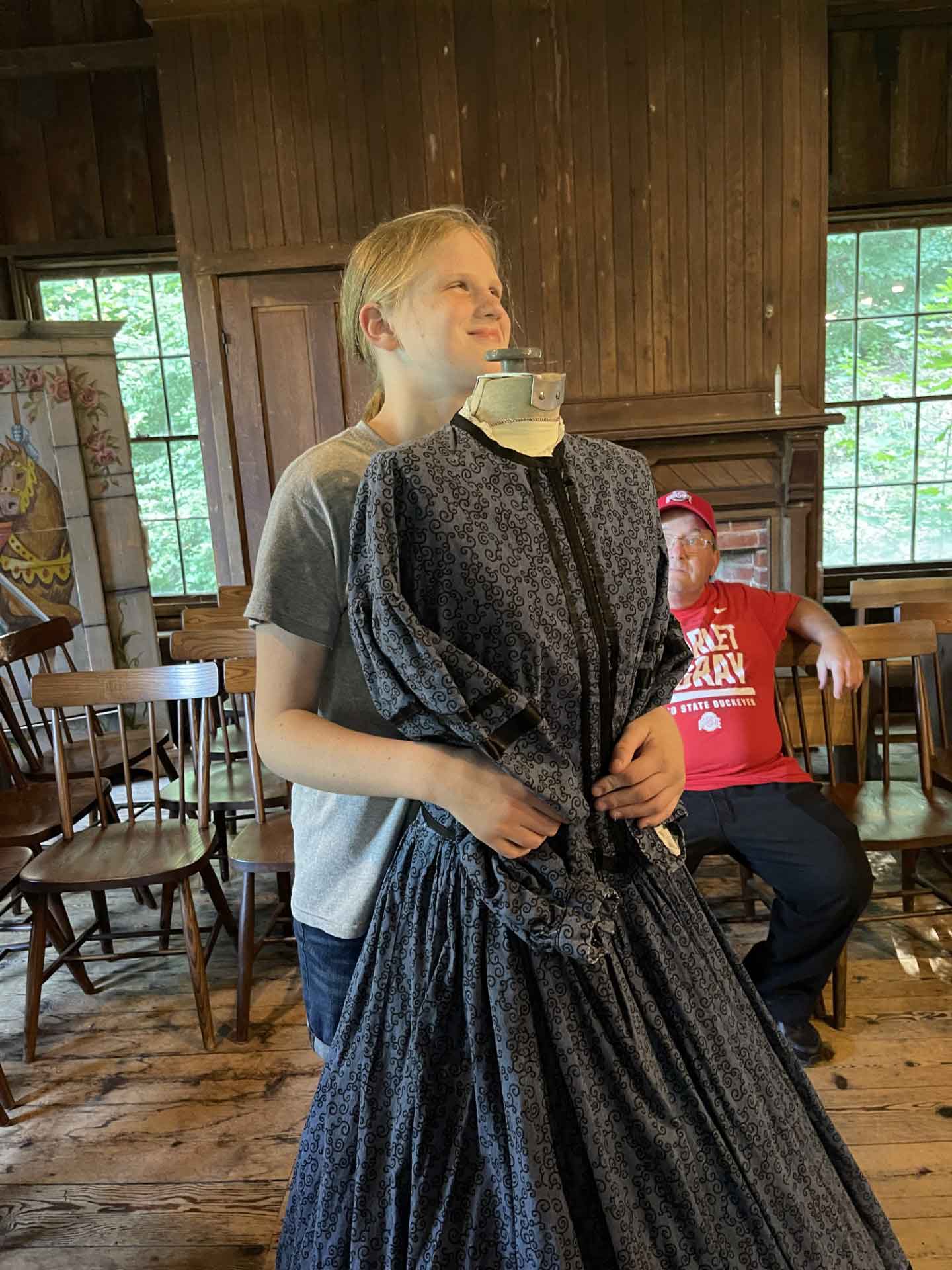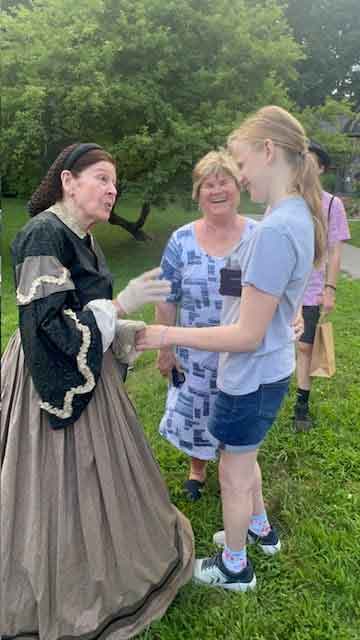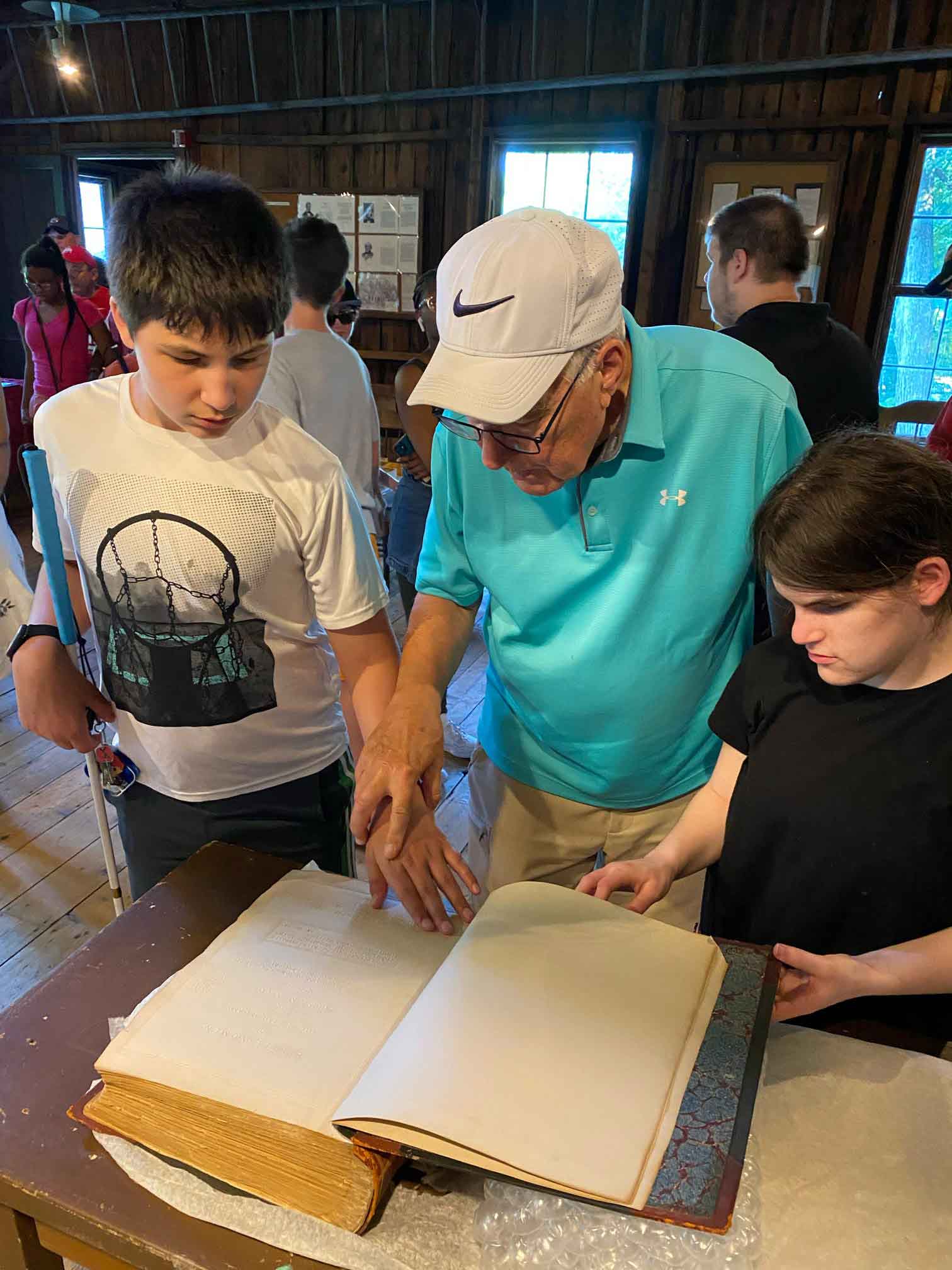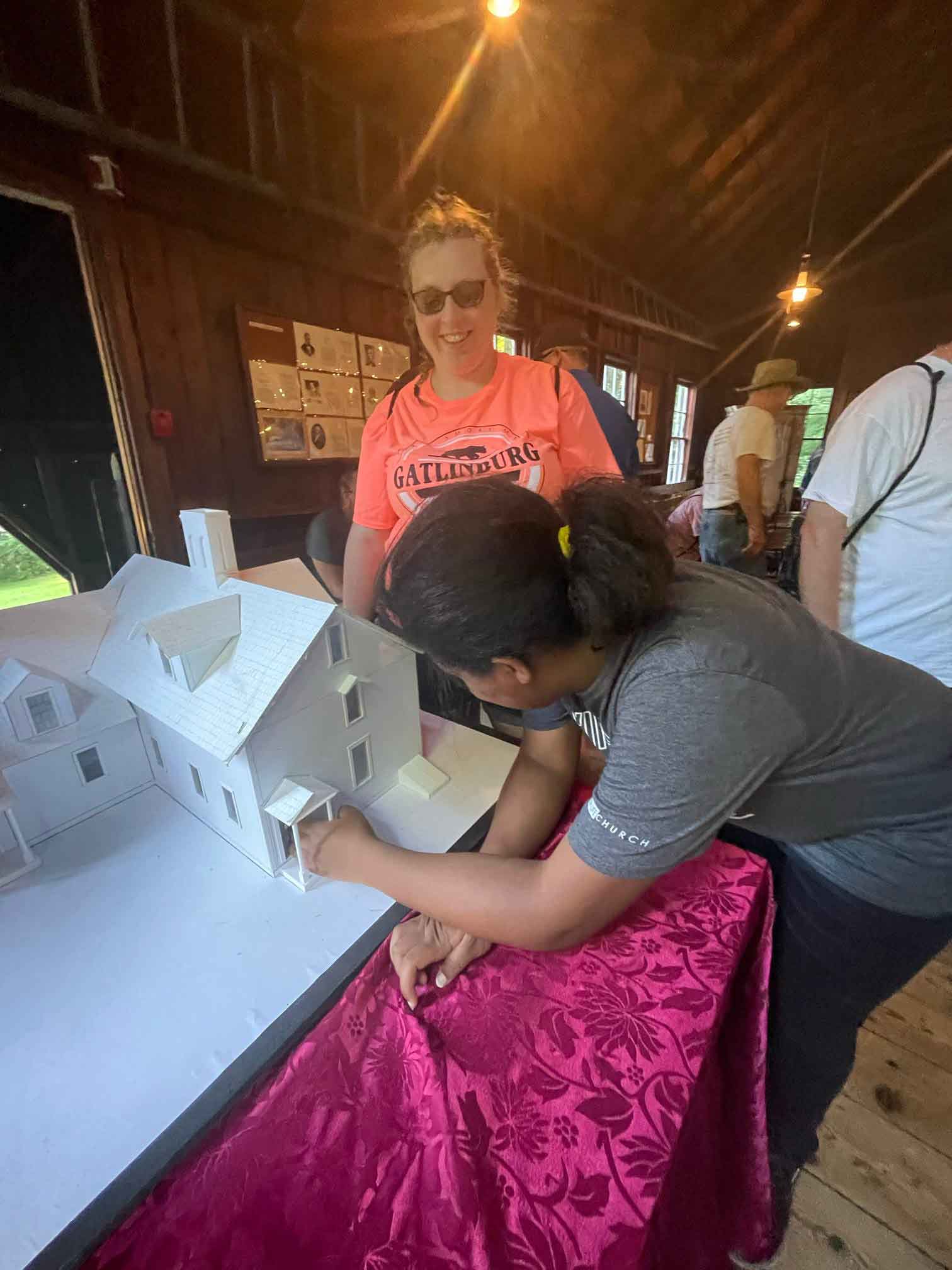Take one beloved band director with vision, add 25 blind marching band students; mix well in Louisa May Alcott’s Orchard House and voila! You have an extraordinary, never-to-be forgotten experience. This summer we were privileged to welcome the nationally-recognized blind marching band, the Marching Panthers from the Ohio State School for the Blind, for a truly extraordinary event.
Al Dentino, retired band director for Concord-Carlisle High School (CCHS), helped organize the event which began in the School of Philosophy on the grounds of Orchard House. There we had set up stations where the students could explore by touch a model of the exterior of Orchard House as well as the interior floor plans. A typical costume of the era, complete with hoop skirt, was set up on a mannequin to give the students a sense of what Louisa May Alcott would have worn. And on a table was a most unusual book. In the Orchard House attic decades ago, I had seen a copy of Little Women in Braille—or so I thought! I was delighted to find that it was still there; however, I could now see that the book was not written in Braille but was written with raised letters. Such books were a precursor to modern-day Braille and are no longer made, so I thought it would be especially interesting for the students to feel this raised letter version of the beloved book.
 Courtesy of Orchard House
Courtesy of Orchard House Courtesy of Orchard House
Courtesy of Orchard HouseAfter experiencing the objects in the school, we broke the students with their sighted guides into groups and took them through the rooms of Orchard House. Our emphasis was not to describe each room in detail, but instead to take a moment in each room to first experience the atmosphere in silence. There is a smell and an ambience in the house that can be felt without eyesight. After a few words in each room, we also had an object to pass around. One of the favorite objects was a skein of raw flax. After explaining that the Alcotts, who were strong abolitionists, were boycotting slave-produced cotton, we explained that flax could be grown on the Alcott’s own property and then spun and woven into linen fabric. First, we passed around a skein of flax thread. “It feels like hair!” exclaimed one student. The same young man then said, “It smells like peppermint!” While the sighted observers did not seem to discern this, other blind students agreed.
 Courtesy of Orchard House
Courtesy of Orchard House  Courtesy of Orchard House
Courtesy of Orchard HouseBecause Al wanted me to appear as Louisa after we exited the House, I needed him to make it clear to the blind students that I was now standing in front of them in costume, which he did deftly by saying, “Oh here’s Louisa Alcott; she’s wearing a dress just like the one you felt in the school.” At that point, I was free to speak in character about my friends at the Perkins School for the Blind in Boston. As Louisa, I said how delighted I was to help fund and use my influence to support Perkins’ creation of the first kindergarten in the country for blind children. (The raised letter version of Little Women was sent to Orchard House much later as a token of gratitude.) We went on to discuss the “War of Dots” concerning using the raised letters versus another system of reading with dots developed by Louis Braille in France. In speaking about a debate concerning which way to produce reading material for the blind, I asked the students what they thought about these two systems. They were unanimous in saying Braille is easier to read because the structure of Braille dots is unique for each letter and can be easily distinguished from each other whereas raised letters often feel too similar to each other.
Later that evening, I joined the band at CCHS and spoke with their founder, Carol Agler, and their director, Yolanda Johnson. Yolando told me that the highlight of their entire trip was visiting Orchard House, where the students could be themselves and understand history in such a personal way. I watched with joy as Yolanda tapped out a count and began to walk amongst the band as they struck up the powerful opening notes. I listened to and saw for the first time a blind band playing together with absolute abandon. The combination of history, music, and genuine human connection truly made this a breath-taking and life-affirming event!


